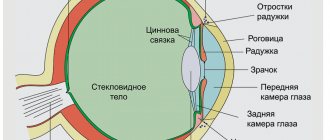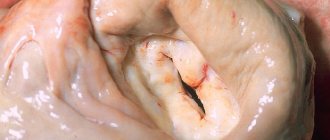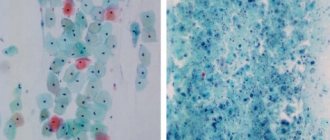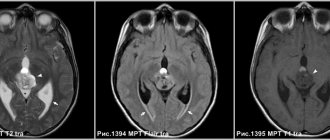An allergy is an extremely unpleasant and dangerous reaction of the immune system that occurs in response to a variety of substances. Drug allergies can cause a lot of trouble for patients and doctors. It is almost impossible to predict the development of a pathological reaction to an ordinary drug, and the consequences can be very serious for the body. It is especially difficult to deal with allergies if the medicine has not been prescribed by a doctor.
According to statistics, in 9 out of 10 cases this pathology develops while taking aspirin or drugs containing sulfonamides. In third place are antibiotics. Despite extensive research, it is still not possible to identify the true frequency of adverse reactions - most often patients do not seek help, and the symptoms go away on their own. While allergies are listed as a side effect in the instructions of almost all medications.
There are two fundamentally different types of allergic reactions:
- Immediate. They develop almost instantly after taking the medicine. Typically, an accelerated reaction leads to the development of life-threatening complications - Quincke's edema, anaphylactic shock.
- Slowed down. They appear gradually, the first signs are visible a few days after administration.
In an immediate reaction, symptoms include rash, itching, and swelling. Delayed is characterized by a wider range of clinical manifestations, and diagnosable changes occur in the results of laboratory blood tests.
At CELT you can get advice from a gastroenterologist.
- Initial consultation – 3,500
- Repeated consultation – 2,300
Make an appointment
Symptoms of the disease
Drug allergies very rarely become chronic; acute reactions develop more often
Typical symptoms:
- Hives, skin rashes, itching. The red bumps disappear when pressed. Skin symptoms persist for up to a day.
- Quincke's edema.
- Attacks of bronchial asthma.
- Allergic rhinitis (runny nose).
If symptoms go away on their own or while taking antihistamines, this does not mean that you can neglect consulting a doctor. Especially if the child has developed an allergy.
The most dangerous symptom that requires emergency care is anaphylactic shock. This is the name of a condition in which muscle spasms occur, suffocation develops, and swelling of the lungs and brain appears. To eliminate the threat to life, anti-shock measures are required, which can only be carried out by qualified physicians.
When the first symptoms of a drug allergy appear, it is recommended to follow the following algorithm of actions:
- The first step is to stop using the drug. If the reaction is just beginning to develop, this may be enough to prevent complications. Next, you should carefully monitor your well-being.
- If at least one of the symptoms appears and persists for 10 minutes, then you need to take an antihistamine - any that is at hand.
- If symptoms increase, or the effect of an antihistamine is not enough to relieve allergies, you should immediately consult a doctor.
Symptoms
Symptoms of a drug allergy depend on the type of hypersensitivity and whether the patient has other types of allergies.
How does an allergy to medications manifest?
- anaphylactic shock;
- fever;
- skin lesions;
- blood diseases;
- vasculitis;
- responses of the nervous system;
- hives;
- diseases of the mucous membranes;
- serum sickness;
- problems with the respiratory system;
- swelling;
- toxidermy.
The diagnosis is made on the basis of tests (including blood tests), collection of an allergic and pharmacological history, and a clinical picture. The doctor identifies the relationship between taking the drug and its consequences, collects data on the course of past treatment with this drug, and studies family history.
If a child is allergic to a medicine, the doctor analyzes the pregnancy period. Most information is provided by immunological/allergological tests. Please note that skin tests are not performed for this type of allergy in order to avoid complicating the situation and provoking anaphylactic shock.
Diagnosis and causes of drug allergies
Diagnosis begins with identifying the specific drug that provokes the development of allergies. In some cases this is obvious and a history may be sufficient. Sometimes you will need to conduct a series of allergy tests. In any case, diagnosis does not take much time.
To help the doctor make a diagnosis, it is worth preparing answers to the following questions: what medications the patient took before developing allergies, whether there have been similar episodes before, which medications the patient has been taking for a long time, and which ones were recently prescribed. It is important to accurately describe symptoms and record their duration.
The causes of drug allergies are simple and clear - the development of a pathological response to a substance that is part of the medication.
Treatment of drug allergies
Treatment directly depends on the severity of symptoms, the course of the underlying disease and the list of disease provocateurs. The treatment regimen is developed individually for each patient. First of all, you need to avoid taking provoking medications. If it is not known which drug is causing the allergic reaction, then temporary withdrawal of all medications is recommended.
First medical aid consists of gastric lavage (relevant if the medicine has been taken recently) and taking sorbents. The patient should be under medical supervision to avoid complications. In the presence of typical allergic manifestations (rashes, itching), standard antihistamines are prescribed - usually they are selected according to tolerability and depending on the experience of previous use.
If allergy symptoms intensify and taking antihistamines does not have the expected effect, intramuscular injections of hormonal drugs are prescribed. Most often, a single injection is sufficient. If necessary, the injection can be repeated after 6-8 hours. Treatment is continued either until stable positive dynamics appear or until the main allergic symptoms disappear.
In some cases, it makes sense to use long-acting glucocorticosteroids. If malaise persists during therapy, intravenous drips with saline are prescribed, and systemic intravenous corticosteroids are started. The dosage is calculated depending on body weight and the severity of the condition. Glucocorticosteroids are rarely used orally - only in cases where long-term therapy is required (this happens with the development of a number of rare syndromes).
The methods described above are used in situations where there is no significant threat to health. With the development of anaphylactic shock, specific anti-shock measures are required. After emergency treatment, the patient can be transported to the hospital. Medical supervision is required for at least a week. In addition to treatment, it is necessary to monitor the functions of the heart, kidneys and liver.
Emergency measures and hospitalization are required for patients with the following symptoms:
- Quincke's edema, spreading to the neck and face.
- Bronchial obstruction, severe respiratory distress.
- Complications from the heart, liver.
Patients who have already developed complications due to an allergic reaction should be especially careful.
Treatment of an allergic reaction is complex and involves a number of measures. Only a qualified specialist can prescribe therapy - and treatment must be supervised.
Classification of antihistamines
According to the classification adopted by EAACI (European Academy of Allergy and Clinical Immunology), there are 2 generations of antihistamines*.
Antihistamines (AGDs) 1st generation
1st generation drugs were developed in the middle of the last century, but some are still used today. They have many side effects: they cause drowsiness, can have a negative effect on the gastrointestinal tract, cardiovascular system, vision, and cause dryness of the mucous membranes of the respiratory tract. Such drugs must be taken several times a day, which is very inconvenient. And with prolonged use they become addictive*.
Antihistamines of the 2nd or latest generation
2nd generation drugs are more modern drugs. In terms of safety and ease of use, they are superior to drugs of the previous generation. They do not cause drowsiness, a person maintains concentration and attention. The absence of sedation is especially important for people who spend a lot of time driving a car or working with equipment.
These drugs have a precisely selective effect only on H1-histamine receptors, do not block other types of receptors, and therefore are devoid of most of the side effects of 1st generation AGPs. They can be used for most concomitant diseases, which is very important, since allergies as the only problem are very rare. The effect of the latest generation of allergy medications lasts more than 24 hours, which is very convenient and allows you to take a tablet only once a day. In this case, there is no need to adjust to meals, because the absorption of modern drugs usually does not depend on the presence of contents in the stomach. In addition, drugs in this group are not addictive.
2nd generation AGPs are also a heterogeneous group. There are two subgroups:
- metabolized drugs that have a therapeutic effect only after transformation in the liver (loratadine, ebastine, rupatadine);
- active metabolites - the latest generation of allergy medications that enter the body in the form of an active substance (cetirizine, levocetirizine, desloratadine, fexofenadine).
The main advantages of active metabolites are a faster and more predictable effect, no additional burden on the liver, and the ability to be taken together with other medications that also pass through the liver.
In some classifications, active metabolites are even classified as 3rd generation antihistamines, which, however, contradicts the generally accepted classification.*
The 2nd generation AGP, active metabolites, includes Cetrin®.
Mast cell membrane stabilizers are used in the treatment of upper and lower respiratory tract allergies. They inhibit the release of histamine and other active substances from mast cells, preventing the exacerbation of allergic diseases, such as bronchial asthma.
Glucocorticosteroids (GCS) are used for various allergic diseases. They have a pronounced antiallergic effect, simultaneously affecting the majority of cells involved in the allergic process. This group of drugs can be prescribed for allergic rhinitis in the form of a spray, for bronchial asthma in the form of inhalers, for atopic dermatitis in the form of ointments or creams. In especially severe cases, tablets and injectable corticosteroids are added to these forms.
Symptomatic therapy is also widely used in the treatment of allergies. For example, with bronchial asthma you cannot do without bronchodilators, and with allergic rhinitis - without vasoconstrictor drugs against allergies, etc. It is important to remember that each person is individual, has his own severity of symptoms and severity of the disease, so only a specialist can select those drugs and that treatment regimen that is suitable in each specific case.
Our doctors
Orlova Tatyana Vladimirovna
Doctor - allergist-immunologist, pulmonologist, doctor of the highest category
Experience 37 years
Make an appointment
Shundeva Oksana Veniaminovna
Allergist, doctor of the highest category
Experience 38 years
Make an appointment
Allergy prevention
Patients who have suffered an episode of drug allergy are contraindicated in the future to take the drug that provoked the attack. It is important to know that other drugs that have the same chemical properties can also be dangerous. This is due to the fact that the body reacts in the same way to chemically similar molecules. Drug allergies that develop due to substances of similar composition are called cross allergies.
There are lists and lists of medications that may cause cross-reactions. For example, if you are allergic to a drug from the group of beta-lactam antibiotics, you should not take other medications from this group.
It is important to ensure that the components of the allergen medication are not included in the complex medications used (many anesthetics are combination drugs).
There is also a rule that patients with allergies are not recommended to be prescribed more than three different drugs at the same time.
Read also
Allergy to cosmetics
What are the dangers of cosmetics Adverse reactions to cosmetics are quite common, given their widespread use.
The true prevalence of cosmetic allergies is unknown because people who experience... Read More
Allergic rhinitis
What is allergic rhinitis? Allergic rhinitis is caused by an immune response to certain allergens. Pollen is the most common allergen in seasonal illness. Causes of allergic...
More details
Allergic vasculitis
Most often, this is a reaction to the administration of antibiotics, vaccines, contact with perfumes, fuels and lubricants, food intake, and the course of infectious and systemic diseases. There are various…
More details
Relevance of allergies in children
When it comes to chronic health problems in children, allergies top the list. Allergies can cause pathological conditions of varying severity in children. Causes of allergies...
More details
Allergic dermatitis
What is allergic contact dermatitis? Anyone has ever experienced skin symptoms after using various skin care products, shower gel or shampoo. Such…
More details
Desensitization
This is the name of the procedure that helps get rid of allergy symptoms if it is impossible to stop the drug. This happens with life-saving essential drugs.
The essence of the method is to gradually increase the dose from the minimum to the required for treatment. At the same time, reactions similar to those observed during allergy vaccination occur in the body. Desensitization techniques exist and are used for insulin, antibiotics and aspirin.
Effective diagnosis and treatment of drug allergies in the multifunctional CELT clinic. New treatment methods, qualified allergists, modern equipment - with CELT specialists it is easy to maintain your health.
Make an appointment through the application or by calling +7 +7 We work every day:
- Monday—Friday: 8.00—20.00
- Saturday: 8.00–18.00
- Sunday is a day off
The nearest metro and MCC stations to the clinic:
- Highway of Enthusiasts or Perovo
- Partisan
- Enthusiast Highway
Driving directions








